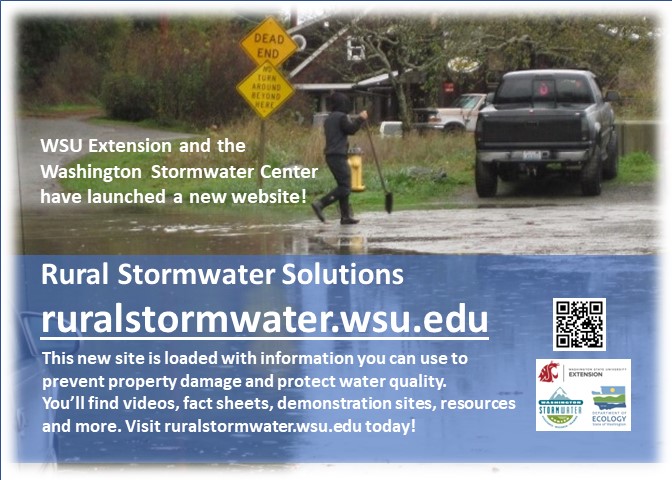It’s all about water.
Whether you’re a homeowner, farmer, citizen scientist, or simply enjoy life-long learning, you’ll find WSU publications, training opportunities, partner information, and information on research and programs here!
News & Features
Molt Search provides early detection of the European green crab

The invasive European green crab threatens shellfish and juvenile Dungeness crab; eelgrass beds which provide critical habitat for juvenile salmon; the food supply for shorebirds; and the overall health of Washington’s marine waters.
WSU Extension is collaborating with WA Sea Grant on a new series of training workshops to teach volunteers how to conduct a systematic 20-minute survey for crab molts, how to properly identify the European green crab, how to gather data and submit their findings using a mobile app.
WSU Extension and the Washington Stormwater Center are excited to announce a new suite of educational materials to help landowners manage stormwater and reduce polluted runoff in rural areas.
All the materials are available on a new website: ruralstormwater.wsu.edu. There are videos, fact sheets, a white paper, demonstration sites, a glossary of terms, and in-depth resources on the website. Topics include stormwater in rural areas, understanding site conditions, creating a site drainage map and options for management drainage.
The May 2023- Issue 17: Water Currents Newsletter includes a great run down of Washington Water Research Center Seed Grant Recipients and great info on the Molt Search Program – an effort to teach citizens to help in the fight against invasive European green crabs.
Art of the Range podcast – Conversations about rangeland management and livestock production hosted by. Washington State University rangelands and livestock specialist Tip Hudson
More News and Events from the Washington Stormwater Center
 Water Currents is an online publication of WSU’s Water Resources Team, including the Water Research Center, Washington Stormwater Center, and WSU Extension. Subscribe now!
Water Currents is an online publication of WSU’s Water Resources Team, including the Water Research Center, Washington Stormwater Center, and WSU Extension. Subscribe now!
WSU Extension, in partnership with WSU’s world class researchers, brings you this wealth of water related information on many aspects of fresh and salt water in Washington state.
Did you know?
You might be surprised at the breadth and depth of WSU research in the area of water. For example, did you know that the WSU Puyallup Low Impact Development (LID) Research Program has one of the largest LID installations in the nation? Researchers there are studying how to treat polluted stormwater using rain gardens and testing permeable pavement in full-scale parking lots.
Whether you are looking for information on the effects of pollutants on salmon, methods to conserve water, how to reduce your impact on water quality, or when it is safe to harvest clams, you have come to the right place.
Dive in and join us!

This WSU Extension web sites provide links to external sites for the convenience of users. These external sites are not managed by the WSU Extension. Furthermore, WSU Extension does not review, control or take responsibility for the content of these sites, nor do these sites implicitly or explicitly represent official positions and policies of WSU Extension.

